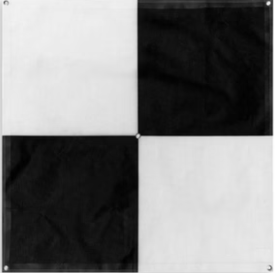Gallstones – Things You Should Know
Gallstones are a common digestive disorder affecting millions of people worldwide. These small, hardened deposits form in the gallbladder and can lead to severe pain and complications if not addressed promptly. Understanding the causes, symptoms, and treatment options for gallstones is crucial for maintaining good digestive health. If you suspect you have gallstones, consulting a gastroenterologist in Hyderabad can provide you with a proper diagnosis and effective treatment plan. In this comprehensive guide, we will explore everything you need to know about gallstones, including their types, causes, symptoms, risk factors, and the latest treatment options available.
What Are Gallstones?
Gallstones are solid particles that develop in the gallbladder, a small organ located beneath the liver. The gallbladder’s primary function is to store bile, a digestive fluid produced by the liver that helps digest fats. Gallstones form when there is an imbalance in the chemical composition of bile, causing cholesterol or bilirubin to crystallize. Gallstones vary in size, ranging from a grain of sand to a golf ball, and can be composed of different materials, leading to two main types:
- Cholesterol Gallstones: The most common type, these stones form when there is too much cholesterol in the bile.
- Pigment Gallstones: These are darker stones made up of bilirubin, a substance produced from the breakdown of red blood cells. Pigment gallstones are more common in individuals with certain medical conditions like liver cirrhosis or hemolytic anemia.
Causes of Gallstones
Several factors can lead to the formation of gallstones, including:
- Excess Cholesterol in Bile: When the liver produces more cholesterol than the bile can dissolve, it may crystallize and form stones.
- Bilirubin Overproduction: Certain medical conditions, such as liver cirrhosis, biliary tract infections, or blood disorders, can cause excess bilirubin production, resulting in pigment gallstones.
- Gallbladder Malfunction: If the gallbladder does not empty completely or often enough, bile may become concentrated, leading to gallstone formation.
Symptoms of Gallstones
Gallstones may not always cause symptoms. When they do, it is often because they have blocked a bile duct, leading to a “gallstone attack” or biliary colic. Common symptoms include:
- Sudden Intense Pain: Pain typically occurs in the upper right or center of the abdomen and can radiate to the back or right shoulder. It often begins suddenly and may last from a few minutes to several hours.
- Nausea and Vomiting: Gallstones can cause digestive discomfort, including nausea and vomiting, especially after consuming fatty foods.
- Jaundice: Yellowing of the skin and eyes may occur if a gallstone blocks the bile duct, causing bile to accumulate in the bloodstream.
- Dark Urine and Pale Stools: Changes in urine and stool color can indicate a bile duct obstruction caused by gallstones.
- Fever and Chills: A fever may indicate an infection of the bile ducts or gallbladder (cholecystitis) and requires immediate medical attention.
Risk Factors for Gallstones
Certain factors increase the likelihood of developing gallstones:
- Gender and Age: Women, especially those over 40, are more likely to develop gallstones due to hormonal factors.
- Obesity: Excess body weight increases the risk of gallstones by raising cholesterol levels in the bile.
- Rapid Weight Loss: Losing weight too quickly can disrupt bile chemistry and increase the risk of gallstone formation.
- Pregnancy: Hormonal changes during pregnancy can slow gallbladder emptying, leading to gallstone development.
- Family History: A genetic predisposition can increase the risk of gallstones.
- Medical Conditions: Conditions such as diabetes, liver disease, and certain blood disorders may predispose individuals to gallstones.
Diagnosis of Gallstones
If you experience symptoms suggestive of gallstones, it is important to consult a gastroenterologist in Hyderabad for a proper diagnosis. The following tests may be used to detect gallstones:
- Ultrasound: The most common diagnostic tool, ultrasound uses sound waves to create images of the gallbladder and can easily detect gallstones.
- CT Scan: Provides more detailed images of the abdomen, helping to identify gallstones or other issues.
- Endoscopic Retrograde Cholangiopancreatography (ERCP): Combines endoscopy and X-rays to visualize the bile ducts and remove any obstructing stones.
- Blood Tests: To check for signs of infection, inflammation, or liver function abnormalities.
Treatment Options for Gallstones
Treatment depends on the severity of symptoms and the size and type of gallstones. Common treatment options include:
- Medications: For patients with mild symptoms or small cholesterol stones, oral medications may help dissolve gallstones over time. However, this method is often slow and may not be effective for all types of stones.
- Cholecystectomy (Gallbladder Removal Surgery): The most common and effective treatment for symptomatic gallstones is the surgical removal of the gallbladder. This can be done through:
- Laparoscopic Cholecystectomy: A minimally invasive surgery involving small incisions, a camera, and surgical instruments to remove the gallbladder. It is preferred due to its shorter recovery time and fewer complications.
- Open Cholecystectomy: A more invasive procedure involving a larger incision. It is typically reserved for complicated cases.
- Endoscopic Procedures: For stones located in the bile ducts, procedures like ERCP can remove the stones without the need for gallbladder removal.
Living Without a Gallbladder
Most people live a normal life without a gallbladder. The liver continues to produce bile, but instead of being stored in the gallbladder, bile flows directly into the small intestine. However, some individuals may experience digestive changes, such as diarrhea or bloating, especially after eating fatty foods. Adjusting your diet and eating habits can help manage these changes effectively.
Preventing Gallstones
While not all cases of gallstones can be prevented, certain lifestyle changes can reduce the risk:
- Maintain a Healthy Weight: Achieve and maintain a healthy weight through a balanced diet and regular exercise.
- Eat a High-Fiber Diet: Include plenty of fruits, vegetables, and whole grains to promote healthy digestion.
- Avoid Rapid Weight Loss: If you need to lose weight, aim for a gradual reduction, avoiding crash diets or fasting.
- Stay Hydrated: Drinking plenty of water helps keep bile fluid and reduces the risk of stone formation.
When to See a Gastroenterologist in Hyderabad
If you experience any symptoms suggestive of gallstones, such as severe abdominal pain, jaundice, or fever, it is essential to seek medical advice from a qualified gastroenterologist in Hyderabad. Timely diagnosis and treatment can prevent complications and improve your quality of life.
Conclusion
Gallstones are a common but often misunderstood condition that can lead to significant discomfort and health complications if left untreated. Understanding the causes, symptoms, and treatment options can help you manage this condition effectively. Consulting with the best gastroenterologist in Hyderabad will provide you with the best course of action tailored to your individual needs, ensuring optimal digestive health. Don’t ignore the signs – seek professional help and take charge of your well-being today.




